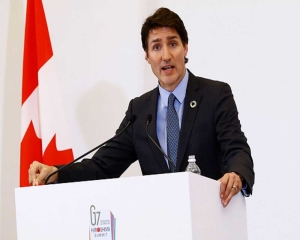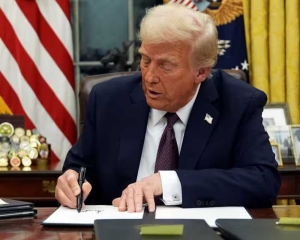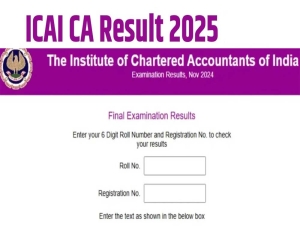As the farmers mount pressure and remain intransigent, the Govt seeks more discussion. Will price guarantee work for it?
This is unlike any other civil protest in recent times and has outlasted them in terms of commitment to a cause, unity despite provocation or temptation and a determination to be heard. The farmers’ intransigence would seem egoistic in the face of liberalisation of the agricultural sector and reforms which are intended to set up an enabling architecture for increasing its GDP percentage. But the farmers fear that the gains of the new farm laws would not percolate down to them and have rightly expressed fears of their negotiating power losing out to the largescale corporatisation it involves. And the Government, by pushing the laws in haste, has lost out on the virtues of consensus that could have ensured acceptance of its policies and addressed the angst of farmers. And though it is considering a clause-by-clause discussion on the Acts now, the fact is the farmers’ protests have now escalated across the country: From demonstrations, sit-ins and road blockades to hunger strikes now. For its part, the Government is no longer relying only on Agriculture Minister Narendra Singh Tomar but, with Union Home Minister Amit Shah stepping in, even high-profile Ministers with heartland appeal like Rajnath Singh are playing the negotiator. Singh said the recent reforms had been undertaken with the best interests of “farmer brothers” in mind and that agriculture was one sector that had managed to avoid the lows of a pandemic-hit economy and had ensured the nation’s food security. But the reconciliatory moves so far have not yielded any results, with the farmers still firm on the repeal of the farm laws. They simply want a level playing field. Experts may argue that the protest is largely being spearheaded by agitationists from Punjab and Haryana, who have benefitted since the Green Revolution because of the Government’s guaranteed pickup of volumes and fixed rates, namely the Minimum Support Price (MSP), and are stuck on cash-rich prospects of wheat and rice. Of course, this assurance has meant an over-dependence on water-intensive crops like paddy and wheat, which is depleting aquifers and crop diversity. However, farmers argue that they would be incentivised to grow other crops provided the MSP was guaranteed for all and not selectively and new laws alone would not even out the imbalance. In the end, the Government has to give a price guarantee of sorts as the Minimum Support Price (MSP) has itself become unremunerative given rising input costs. Farmers are naturally wary of competitive prices in the open market that would lower their earnings. In such a scenario, the Government has to probably do some direct cash transfers to them, grading their capacities, as a transitional measure to a new system. The reason why farmers are not buying into its claim that MSP and Government mandis will co-exist is because price equalisation in an open market would mean that the parallel market would be weakened over time.
Of course, the small and marginal farmers, the lot of whom the Acts intend to improve, would still be dependent on some sort of mediatory intervention to deal with food majors. With most of them not literate enough about exercising their rights, dispute resolution could also end up being loaded against them. The Farmers (Empowerment and Protection) Agreement on Price Assurance and Farm Services Act, 2020, seeks to bring uniformity in contractual farming rules and State APMC Acts. So the farmer can now enter into a contract with a corporate entity at a mutually agreed price. The problem here is that the mechanism for price fixation is not codified and farmers fear that corporations could use their might to manipulate or browbeat them into accepting their terms. Finally, the Essential Commodities (Amendment) Act, 2020, aims to remove cereals, pulses, oilseeds, edible oils, onion and potatoes from a regulated list, which is being seen as a major threat to the food security of the poor. Besides, most farmers do not have or cannot afford the post-harvest warehousing and processing storage this involves. They would willy nilly have to depend on food corporations. A licence won’t be required to trade in farm produce and anyone with a PAN card can now buy directly from the farmers. Growers want they be registered too, considering they have a trusted bond with their existing commission agents, as their licence is proof enough of their credibility and delivery abilities. Governments like Punjab are obviously upset that access to another market would dry up their own revenue from their APMC mandis and are seeing this as an affront to federal controls. Farmers are not entirely without reason, battling as they are bad loans and non-payment of sugarcane dues in Uttar Pradesh and Rajasthan. They do not want to be swamped. And while the Opposition is hoping to make good on a political capital that farmers are, the fact is they themselves are not throwing up any pragmatic alternatives. The Aam Aadmi Party (AAP), which had initially stayed away from the farmers’ stir, is now deciding to fast with them. Yet the Opposition disunity is the reason that it failed to block the Ordinance on farm reforms or muster enough numerical strength to outshout the ruling party in the Rajya Sabha, force a debate and discussion in the House or at least make sure that the legislation was scrutinised by parliamentary committees. Of course, farmers have not let parties take the upper hand and are in it for the long haul. For the Government, it’s impossible to go back unless it brings in another supportive law to convince farmers that they won’t be cheated in the end.
























